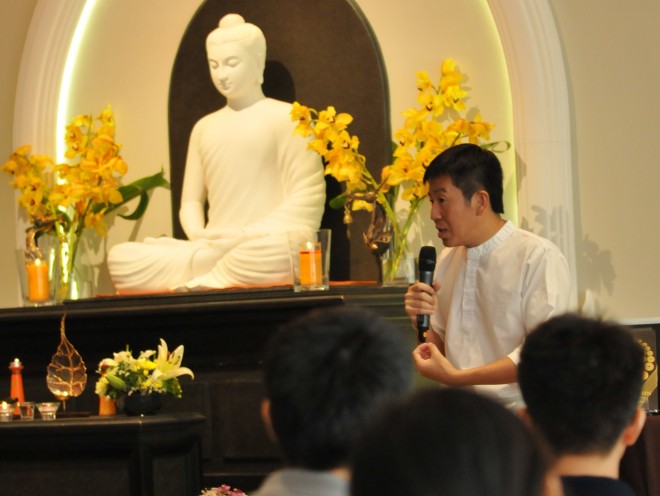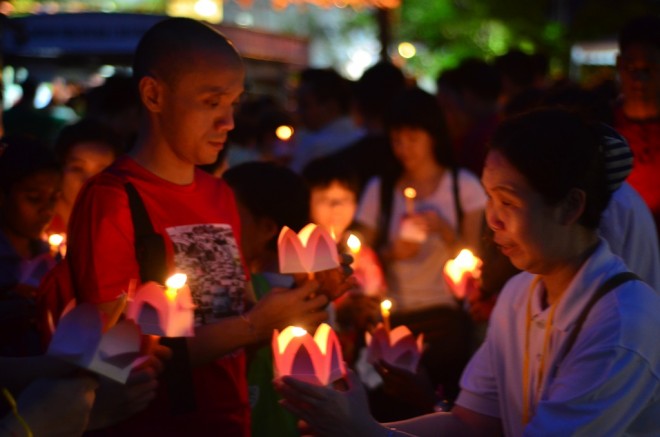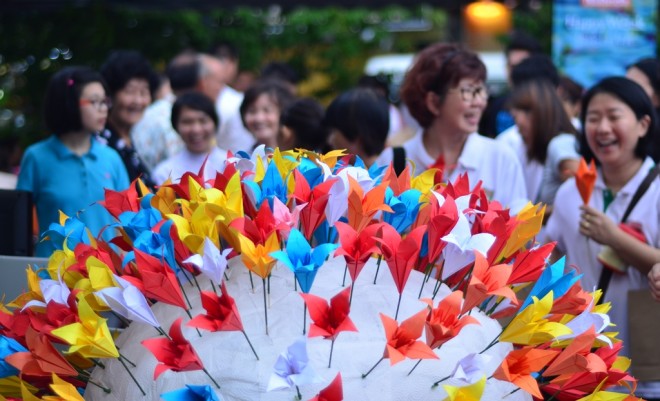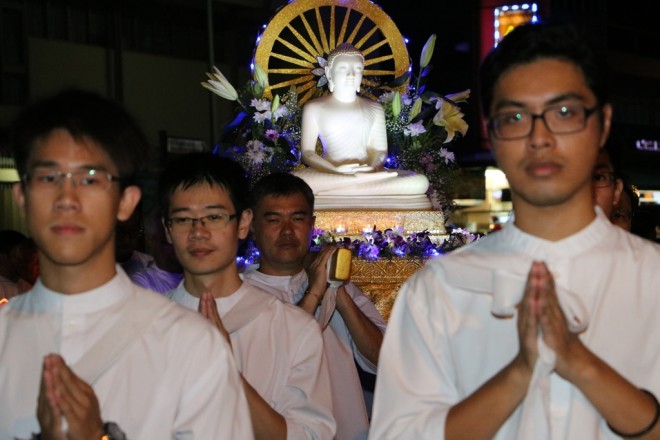Commemorating ‘Buddha Day’
Commemorating ‘Buddha Day’
On Wesak full-moon ‘Buddha Day’, which fell on 21 May this year, Nalanda founder Bro. H. S. Tan gave an insightful and profound Dhamma talk to commemorate the most important day of the year for Buddhists. This auspicious day also marks the start of the Buddhist Era (B. E.) 2560, marking the 2,560th anniversary since the Buddha’s Parinibbāna (passing away).
The Buddha’s passing was extraordinary because it was not wrought with fear, trepidation, worries, and uncertainties. He fully understood what life meant, that it entailed death, and that death is a natural process that follows every birth. This kind of passing away is known as Parinibbāna — Nibbāna means release from the grip of ignorance and from the bondage of Samsara, and liberation from suffering. The Buddha did not suffer although He was ailing from old age. His body was subject to decay but his mind was free from worries.
According to the Theravada tradition, ‘Buddha Day’ is to commemorate: (1) the birth Prince Siddhatta Gotama, the Buddha to be; (2) the day He gained Enlightenment at Bodhgaya (originally called Uruvela); and (3) His Parinibbāna. The Buddha taught for 45 years before He passed away, therefore his teaching (Buddhism) is 2,605 years old; and it was 2,606 years ago when he became Enlightened at the age of 35, i.e. 588 years before the birth of Christ.
Devotees making aspirations as they plant the flowers of ‘Metta’ for the joyful occasion.
The Buddha taught the path to liberation from all suffering, present or potential. Suffering is caused by defilement in the mind, i.e. greed, craving, endless wanting and desires, created by ignorance. We think by fulfilling all our desires suffering will end, not knowing that it will only create more desires, and conditions for the continuation of suffering. The Buddha taught that if we want to be free from suffering, we have to follow the Path of righteousness, wisdom, insight, and liberation.
The Buddha’s teaching goes beyond faith and devotion. To live a life of wisdom is the best way to honour the Buddha and his teaching. For practitioners of Dhamma, proper education and conscientious cultivation lead to transformation and illumination.
If we only listen, read and discuss about the Dhamma without putting it into practice, we’re like a cowherd taking care of other people’s cattle; it will not profit us because the cows belong to someone else. Similarly in Dhamma, to gain transformation we need both good education and proper cultivation.
The Buddha passed away in Jhanic (meditative) bliss with perfect equanimity. If we want to die like Him, than we have to live like Him. To be able to pass away peacefully we must first live wisely and peacefully. And to be able to do that, we should purify our minds day and night to cleanse ourselves from ignorance and delusion.
The opposite of defilement is proper knowledge and Right Understanding; and the antidote for ignorance is wisdom. This was what the Buddha taught after his Enlightenment. We thank Bro. Tan for sharing with us the Buddha’s wisdom and the true significance of Wesak ‘Buddha Day’. Sadhu anumodana.









